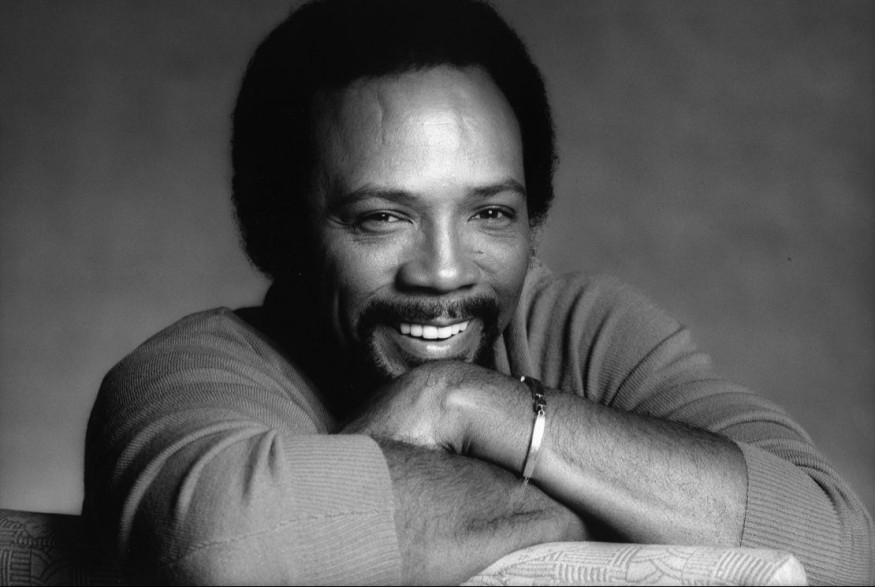
November 04, 2024 - 3202 views
Quincy Jones, the visionary behind some of the most iconic music in modern history, died on November 3, 2024, at 91. His legacy spans decades, weaving through jazz clubs, recording studios, and Hollywood, leaving an indelible mark on popular music and American culture. Known for his genre-defying influence and musical versatility, Jones wasn’t just a composer or a producer; he was a cultural force who continuously pushed the boundaries of sound and style.
Born in 1933 on the South Side of Chicago, Jones’ early years hinted at a tenacity and resilience that would fuel his ascent. Introduced to music in childhood, Jones moved to Seattle as a teen and, by 14, had already bonded with Ray Charles, another budding genius who would become a lifelong friend and collaborator. This was only the start of Jones’ legendary journey, one that would see him move from jazz to pop and then to film, breaking down racial and cultural barriers along the way.
Jones’ career in jazz, which began in earnest in the 1950s, saw him arranging for jazz greats like Count Basie and Duke Ellington. His big break came as a young trumpeter and arranger touring Europe with Lionel Hampton’s band, where he was exposed to global conflicts and a broader understanding of the racial struggles at home. In Europe, he would learn from composers like Nadia Boulanger, honing his skills and deepening his musical vocabulary. Jazz, however, was only a piece of the puzzle for Jones.
In the 1960s, Jones moved to pop and film, shaking up the industry as a producer with Mercury Records and becoming the first Black executive at a major record label. He produced Lesley Gore’s pop classic "It's My Party" and went on to compose groundbreaking scores for films like In Cold Blood and The Italian Job. His work on the Academy Award-nominated scores for In Cold Blood and Banning marked him as a true innovator, earning him a place in history as the first African American to receive dual Oscar nominations in the same year.
Jones’ influence surged in the 1970s and ’80s, peaking with his collaborations with Michael Jackson. Together, they crafted Off the Wall (1979), Thriller (1982), and Bad (1987)—albums that redefined pop and reshaped the industry. With Thriller, Jones oversaw what remains the best-selling album of all time, a project so ambitious that it required Jackson to stretch his artistry in new directions. Jackson’s music videos and Jones' production brought together rock, pop, and funk in ways that electrified global audiences, proving that music could transcend both genre and culture.
Jones also took his talents to the silver screen, co-producing The Color Purple (1985) and introducing the world to future stars like Oprah Winfrey and Whoopi Goldberg. In the same year, he gathered top artists for the historic “We Are the World” charity single, raising millions for famine relief in Ethiopia and cementing his reputation as a humanitarian as well as a hitmaker.
Throughout his career, Jones was lauded for breaking racial barriers. In 1971, he became the first Black music director for the Oscars, and in 1995, he was awarded the Jean Hersholt Humanitarian Award. These accomplishments underscored his drive not only to elevate music but to foster greater representation and inclusivity in the arts.
Jones wasn’t one to sit back and admire his achievements; he was always looking ahead. In his later years, he ventured into new media, co-founding Qwest TV, the first on-demand platform dedicated to jazz and world music. His influence extended to younger generations through mentorship, fostering the talents of musicians like Jacob Collier, who continue to push the limits of what music can be.
Quincy Jones transformed the landscape of American music, turning it into a place where jazz, pop, and soul could all be part of the same conversation. His passing marks the end of an era, but his legacy—spanning 70 years and 28 Grammy wins—reminds us that music’s power lies in its ability to connect, inspire, and challenge us. Through his songs, scores, and spirit, Quincy Jones will continue to resonate for generations to come.



Comments(0)